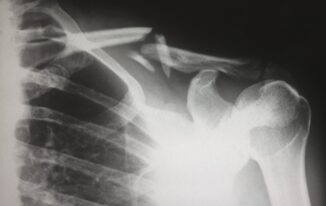
Car accidents can have a lasting impact on anyone involved. While many think of costs like medical bills and vehicle repairs, these are only part of the story.
Car accidents can lead to significant non-economic losses that affect a person’s daily life and emotional well-being. These losses can include physical pain, emotional distress, and the overall loss of enjoyment in life. Such damages can be hard to quantify but are just as important as economic losses.
In such situations, it may be crucial to talk to a car accident lawyer who can help you understand the full scope of damages you may be entitled to and guide you through the legal process.
What Are Non-Economic Losses?
Non-economic losses are damages that affect a person’s emotional and physical well-being. Unlike medical expenses or lost wages, which can be calculated with a receipt or a paycheck, non-economic losses don’t have a specific dollar amount.
Any person who has been in a car accident can claim compensation for the mental, emotional, and physical distress that they have suffered due to the accident. Though these aspects are not easily calculable as they may vary from person to person, the legal system has established methods for estimating non-economic damages.
Types of Non-Economic Damages
Non-economic damages cover aspects of life that are harder to quantify but deeply affect a person’s quality of life. Here are some of the most common types:
Pain and Suffering
Pain and suffering describes the physical pain a person experiences after an accident. Injuries like broken bones, whiplash, or nerve damage can cause ongoing pain that disrupts daily life and comfort.
Courts often use a “multiplier method” to estimate these damages, multiplying the economic costs by a factor (usually between 1.5 and 5) based on the injury’s severity.
Emotional Distress
Mental trauma after a car accident can have a lasting impact. This might include anxiety, depression, or even posttraumatic stress disorder (PTSD).
People dealing with emotional distress may struggle with flashbacks, fear of driving, or difficulty concentrating on daily activities.
Loss of Enjoyment of Life
Injuries from a car accident can prevent someone from engaging in hobbies, sports, or social activities they once loved.
For instance, if a person who used to enjoy hiking is now physically unable to do so, they suffer a “loss of enjoyment.” This form of non-economic damage recognizes the personal impact of an injury on daily happiness.
Permanent Disability or Disfigurement
Severe accidents may result in permanent disabilities, like paralysis or brain injuries, which impact a person’s ability to work or live independently. The loss of physical ability often requires lifelong care or assistance, affecting both the individual and their loved ones.
Loss of Consortium
Car accidents impact more than just the victims; they can also affect family relationships. “Loss of consortium” refers to the damage caused to close relationships, especially between spouses. This may include a reduction in companionship, emotional support, or intimacy, creating additional strain on both the victim and their loved ones.
Seeking Compensation for Non-Economic Losses
Seeking compensation for non-economic losses can be challenging, as these damages are more complex to measure than financial losses.
However, understanding these losses is critical to pursuing fair compensation that reflects the full impact of the accident on the victim’s quality of life. Consulting with a car accident lawyer can help ensure these damages are adequately accounted for, making it easier for victims to seek the support they need during recovery.



